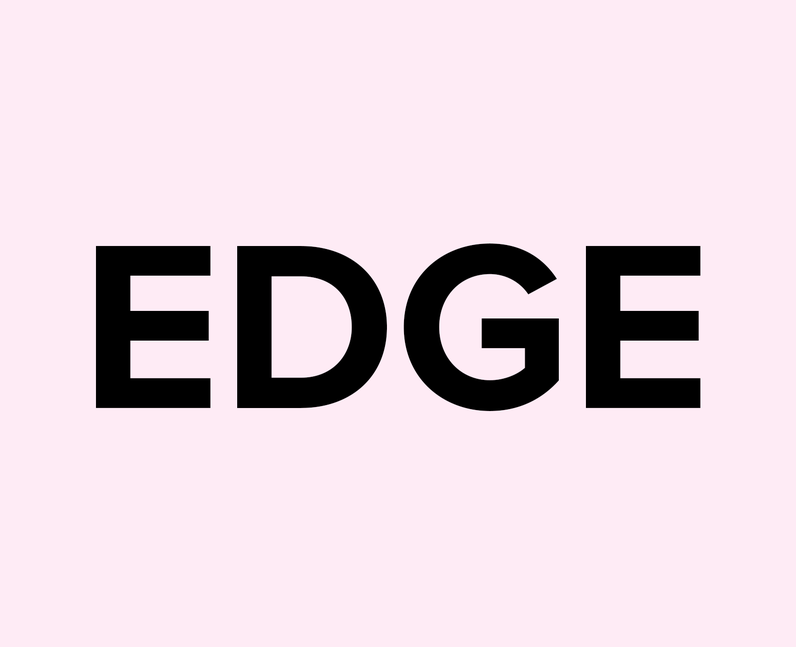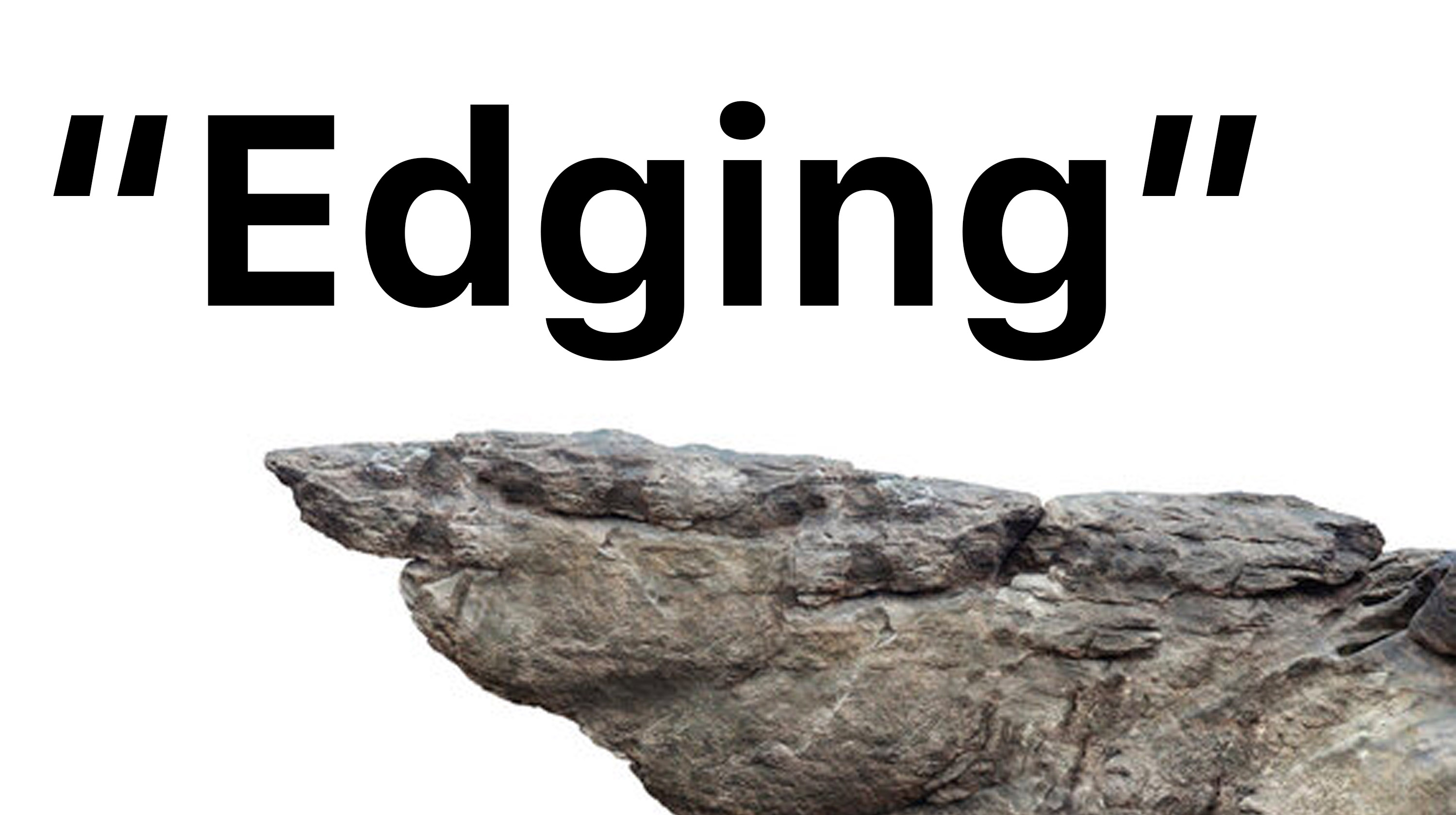Ever found yourself scrolling through TikTok, utterly perplexed by the barrage of slang terms? The Gen Z lexicon is a vibrant, ever-changing landscape, and one of its most intriguing features is the evolution of existing words and the invention of entirely new ones.
The world of language is, as ever, in flux, particularly amongst the younger generations. This is especially true of Generation Z, a cohort famed for its dynamism, its diversity, and its willingness to redefine, repurpose, and reinvent the very words we use. Among the terms that have garnered attention and curiosity in recent years is "edging," a term that has seen particularly widespread use on platforms like TikTok, but its meaning and context are very different from what you might assume. Understanding this is key to decoding modern conversations.
To fully grasp the current meanings, it's vital to understand how Gen Z approaches language. For this cohort, language is a tool of self-expression, a means of forging community, and a way of signaling belonging. It is also a tool of humor, of irony, and of subversion.
Here's a table summarizing the different aspects of the term "Edging" as it pertains to Gen Z slang:
| Term | Context | Meaning | Examples |
|---|---|---|---|
| Edging (Sexual) | Sexuality, Relationships | The practice of bringing oneself to the brink of orgasm but intentionally stopping short of climax. This can be done during intercourse or masturbation. | "Part 2 edging is simply the practice of getting almost to o, and then stopping the touch, changing the stimulation or using deep breaths to lower your arousal." |
| Edging (TikTok Context) | Social Media, Online Interactions | The act of engaging with content right up to the point of fulfillment or satisfaction, but intentionally holding back or stopping just before reaching that point. Often used for comedic or ironic effect. | Scrolling through TikTok's "For You" page (FYP) and only stopping at the last possible moment before the next video loads. Teasing a big announcement on TikTok, leaving followers hanging. |
| Edging (Metaphorical) | General Usage, Everyday Conversations | Intentionally delaying gratification; prolonging excitement or anticipation in various contexts, like waiting for a new season of a favorite TV show or putting off an important task. | "I'm edging myself by not binging the whole series at once." "The company is edging the release of the new product to create buzz." |
| Edge (Trading) | Finance, Investment | Positive expectancy in trading. Anything that gives an investor a statistical advantage in the market. | "The true meaning of edge in trading positive expectancy is the real definition of profitable edge." |
For more information about Gen Z slang terms, consider visiting Dictionary.com.
The term "bop" is a fine example of the kind of linguistic fluidity we are dealing with. But what about "edging"? It has become a potent example of the creativity with which Generation Z uses and redefines language, moving far beyond the confines of its original definitions. Its a concept thats both a source of confusion for older generations and a hallmark of the digital natives experience.
The term "edging" itself has been around for a while, of course, but its meaning has shifted significantly in recent years. Originally, "edging" referred to a specific sexual practice: the act of delaying orgasm to prolong sexual pleasure. This definition remains relevant, but it has been expanded and repurposed within the Gen Z online community, especially on platforms like TikTok.
The first use of the word edging is in the context of sexual content. "Edging" describes the sexual act of preventing and prolonging orgasm, taking the user to the brink of climax, but stopping before they get there. This can be done repeatedly, which is seen to extend the experience. This is a very physical practice, where the sensations of the body are enhanced and stretched out.
As the online world and, in particular, social media, has become more influential, Gen Z has taken this word and morphed it for use in social media. This transformation is a testament to the flexibility of language itself, as well as the ways in which young people mold it to suit their experiences.The essence of "edging" in the context of TikTok lies in the practice of maximizing engagement without the instant gratification of complete satisfaction. Its about the anticipation, the build-up, and the subtle tension of waiting. This manifests itself in various ways.
One key aspect of edging on TikTok is the deliberate delay in content consumption. Imagine a user scrolling through their "For You" page (FYP), the personalized stream of videos tailored to their interests. Instead of simply letting the videos play, they might scroll right up to the final second of a video, pausing right before the next one loads. This creates a sense of suspense, of almost-satisfaction. Think of it as a digital cliffhanger, where the user is constantly on the verge of experiencing the next piece of content, but always teetering on the edge.
Another variation of "edging" on TikTok involves teasing the audience with anticipation. Creators might announce a major piece of information, a product launch, or a piece of news, and then leave the audience waiting for the reveal. This creates a heightened sense of anticipation, keeping viewers engaged and eager for more. The longer the wait, the more "edged" the audience becomes.
In essence, "edging" on TikTok is a kind of digital tease, an act of controlled withholding to build engagement. It plays on our innate desire for instant gratification and the thrill of waiting for a satisfying outcome. It can be used in a variety of contexts, from the humorous to the ironic. It reflects the playful, often self-aware nature of much of Gen Z's online communication. This use is very distinct from the sexual context, but still has its roots in the idea of prolonged sensation.
The term "edging" has spread beyond the confines of TikTok. It has become a part of everyday Gen Z slang, employed to describe the act of prolonging anticipation or delaying gratification in other contexts. For example, someone might say they are "edging" a new video game, meaning they are savoring the anticipation of playing it. Or, they might say they are "edging" a new season of their favorite TV show, meaning they are drawing out the wait.
The use of "edging" in the context of political discourse is perhaps one of the most striking examples of its adaptability. The phrase "I edge to you" has been seen flooding the comments sections of videos, particularly related to political candidates. This may be a way of expressing humor, of using the word to indicate a level of excitement or even frustration, related to the candidate. The very specific nature of this context shows how Gen Z is able to take a concept and make it fit the world around them.
Generation Z's playful use of language is not limited to the term "edging." It extends to a vast array of slang words and phrases, often employed to create a sense of community, to signal in-group membership, or to comment on the world around them. Terms like "based," which indicates someone who is true to themselves; or "gooning," which represents something odd, deep, and dark. These terms, and many others, are a crucial part of the Gen Z experience. They reflect the very nature of how this generation thinks and interacts with the world.
Understanding the evolution of language is crucial for navigating the ever-changing landscape of modern communication. Generation Z's influence is undeniable, and their ability to redefine and repurpose language is a testament to their creativity, their sense of community, and their unique perspective on the world. So, the next time you find yourself baffled by a Gen Z slang term, remember that language is constantly in motion, and these young people are the architects of that movement.
It's worth noting that "edging" is not the only term that has been adopted, adapted, and deployed with great enthusiasm by Gen Z on TikTok. Terms like "gooning," which has a very different, and darker, meaning from its use in older media, as well as others, have become widespread. This is why it is essential to keep abreast of these trends.
The rapid rise of these phrases, their widespread use, and their constant mutation, underlines the fundamental point that language is always in flux. For those outside the Gen Z cohort, learning about these terms is not just about avoiding confusion or sounding outdated; its a key to understanding the digital native experience and the ways in which language shapes culture.
Consider the impact of social media on the way we talk. TikTok, in particular, has created a hotbed for linguistic innovation, with trends, memes, and slang terms spreading rapidly across the platform. A term can go from obscurity to viral status within days, often fueled by the creative content and online interactions of Gen Z users. This is what makes keeping up with trends like "edging" so vital.
In this context, even the most simple terms can take on new and layered meanings. To stay relevant, one has to understand the different ways in which these words are used, and the different meanings that can be carried within each context. It is, after all, a new world out there.


